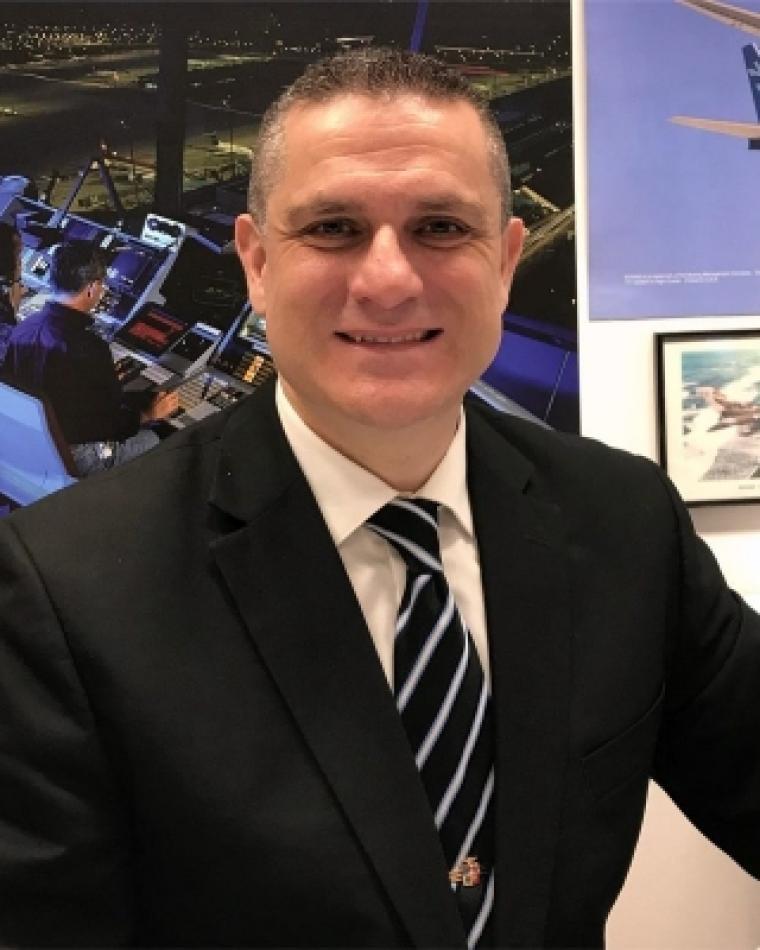
Roberto Sabatini
Roberto Sabatini
Contact Menu
Roberto Sabatini is a Professor of Aeronautics and Astronautics with over thirty years of experience in aerospace, defense and geospatial systems research and education, having served in various industry, government and academic organizations across Europe, North America, Australia and Asia. His research addresses key contemporary challenges in avionics, spaceflight and robotics/autonomous systems design, test and certification, focusing on the central role played by cyber-physical systems and AI in the digital transformation and sustainable development of the aerospace sector (e.g., trusted autonomous systems, urban and regional air mobility, distributed space systems, space domain awareness, and multi-domain traffic management).Prof. Sabatini holds various academic qualifications in engineering, science and management disciplines, including doctoral degrees in Aerospace Engineering (Cranfield) and Geospatial Systems (Nottingham).
As a licensed Flight Test Engineer, Private Pilot and Remote Pilot, he has logged more than two thousand flight hours on various aircraft types, including jets, turboprops, propeller aircraft, helicopters, and both fixed-wing and multi-rotor unmanned aircraft. Prof. Sabatini is a Chartered Professional Engineer (CPEng), as well as a Fellow and Engineering Executive of the Institution of Engineers Australia (FIEAust and EngExec). He is also a Fellow of the Royal Aeronautical Society (FRAeS), Fellow of the Royal Institute of Navigation (FRIN), and Fellow the International Engineering and Technology Institute (FIETI). Additionally, he holds Senior Membership status with the Institute of Electrical and Electronics Engineers (IEEE) and the American Institute of Aeronautics and Astronautics (AIAA).
Throughout his career, Prof. Sabatini has led several industry and government-funded research projects and has authored or co-authored more than 350 peer-reviewed international publications. The Australian Research Special Report 2021 recognized Prof. Sabatini as the top national scientist in the field of Aviation/Aerospace Engineering and, according to the Stanford ranking, he is in the top 2% most cited scientists globally in Aerospace and Aeronautics. He was conferred prestigious national and international awards, including the Distinguished Leadership Award – Aviation/Aerospace Australia (2021), Scientist of the Year – Australian Defence Industry Awards (2019), Science Award – Sustainable Aviation Research Society (2016), Arch T. Colwell Merit Award (2015) - Society of Automotive Engineers, and Scientific Achievement Award – NATO Research & Technology Organization (2008).Prof. Sabatini holds and hasheld honorary/visiting appointments at various international institutions, including RMIT University/Sir Lawrence Wackett Defence and Aerospace Centre (Australia), Polytechnic University of Turin (Italy), Chosun University (South Korea), Durban University of Technology/Space Science Center (South Africa), and the Korea Aerospace Research Institute (South Korea).
In 2020, Prof. Sabatini was nominated Distinguished Lecturer of the IEEE Aerospace and Electronic Systems Society (AESS) and, since 2021, he has served as Chair of the IEEE AESS Avionics Systems Panel (ASP). In 2022, he was elected to the Board of Governors of the IEEE AESS and, since January 2024, he has served as Vice President for Technical Operations. Currently, Prof. Sabatini serves in the editorial board of several journals, including the IEEE Transactions on Aerospace and Electronic Systems, Progress in Aerospace Sciences, Robotica, Aerospace Science and Technology, the Journal of Navigation, and the IEEE Aerospace and Electronic Systems Magazine.
- Present Member (Avionics Systems Panel)
- 2025-Present IEEE Standards Association Committee Representative (IEEE Standards Association Committee)
- 2025-Present Harry Rowe Mimno Award Selection Committee Member (Harry Rowe Mimno Award Selection Committee)
- 2024-Present Vice President Technical Operations (Officers)
- 2024-Present DASC Liaison (Conference Representatives and Liaisons)
- 2024-Present Vice President Technical Operations (Technical Operations Committee)
- 2024-Present Vice President Technical Operations (Systems Magazine Editorial Board)
- 2024-Present Panel Members (Glue Technologies for Space Systems Panel)
- 2024-Present IEEE AESS Technical Panel of the Year Award Selection Committee Chair (IEEE AESS Technical Panel of the Year Award Selection Committee)
- 2023-Present Robert T. Hill Best Dissertation Award Selection Committee Member (Robert T. Hill Best Disertation Award Selection Committee)
- 2023-Present Industry Relations Committee Member (Industry Relations Committee)
- 2023-Present Technical Operations Committee Chair (Technical Operations Committee)
- 2022-Present Publications Committee Member (Publications Committee)
- 2022-Present Member (Cyber Security Panel)
- 2015-Present Associate Editor (Systems Magazine Editorial Board)
- 2015-Present Avionics Systems Associate Editor (TAES Technical Areas and Editors)
- 2022-2024 Board of Governor Member-at-Large (BoG)
- 2020-2024 Avionics Systems Panel Chair (Technical Operations Committee)
- 2020-2024 Avionics Systems Panel Chair (Avionics Systems Panel)
- 2022-2022 Technical Operations Committee Member (Technical Operations Committee)
- 2015-2021 Avionics Systems Senior Editor (TAES Technical Areas and Editors)
- 2019-2020 Vice-Chair (Avionics Systems Panel)
- 2020-2026 Distinguished Lecturer
-
LecturePresenterDateSeriesVirtual DL: 2023 SeriesVirtual Distinguished Lecturer Series
-
LecturePresenter
-
LecturePresenterDateSeriesVirtual DL: 2024 SeriesVirtual Distinguished Lecturer Series
Distinguished Lecturer until 2026
-
WebinarPresenterDateSeriesVirtual DL: 2021 - Fall SeriesVirtual Distinguished Lecturer Series
-
WebinarPresenterDateSeriesVirtual DL: 2021 - Spring SeriesVirtual Distinguished Lecturer Series
-
WebinarPresenterDateSeriesVirtual DL: 2020 - Avionics SeriesVirtual Distinguished Lecturer Series
-
LecturePresenter
-
Presenter
